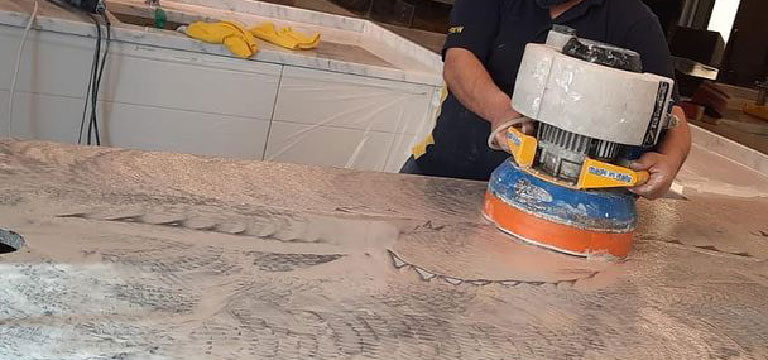If you’ve just moved into a new home with granite counters in the kitchen or bathroom, you are of course very lucky. Equally, you may be fortunate to have just fitted some granite surfaces.
But there are a few common problems which can occur post-installation, or which you may notice if you’re new to a home. Here, we discuss them – and potential reasons and solutions.
My countertop feels gritty
Unfortunately, this could because you have low-grade slabs of the stone. It could also be an indication that the surface isn’t structurally sound. And there’s not much you can do about this, sadly, other than understand about the quality of your granite pre-installation. Buy your worktops through a reputable contractor and, if you’re not happy, hold them accountable, especially if they picked the slab.
There are dark spots on my worktop
If you can see a number of similar-looking dark spots on your granite, it could be due to the glue or adhesive the fitters used. Or sometimes an accelerant is used to help the glue dry more quickly; occasionally, this can react with the stone.
With stains resulting from glue, these tend to form a consistent pattern and are evenly spaced. It’s important that you seal your countertop after you have removed these marks.
Happily, most stains can be removed by using the right products and following specific granite cleaning techniques carefully.
I want to darken my countertop so it all matches
It can happen that, especially with older units, some areas, such as those near the sink or stovetop where they are vulnerable to splashes of oil or water, can darken. If you like the darker colour, and want the whole worktop that shade, how do you even it out?
You may not realise that you can buy a granite-darkening product – apply and leave for around a quarter of an hour before applying a second coat if needed.
My countertop is readily absorbing water
If this is happening, your unit needs to be sealed. Some counters do not need to be sealed at all. But if the countertop is clearly absorbing water, or you can see dark marks from it, sealing is necessary.
You need to reapply this regularly unless you use a permanent sealant. However, when you do this, there is no need to remove the existing layer of sealant.
It’s worth allowing the surface to dry out thoroughly before resealing. You may just need to not use your sink for a couple of days, if possible.
Make us your first port of call
At Royal Stone Care, we specialise in looking after granite units. We understand granite cleaning, sealing and granite repair in London better than anyone, and have the expertise and resources to provide an outstanding service every time.
So talk to us before you talk to anyone else.

